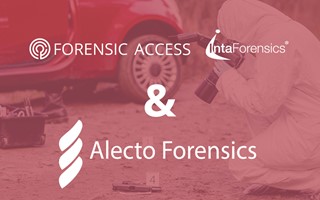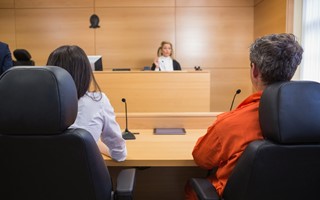News March 23, 2020 3m
“There is a need to review and challenge the national leadership, oversight and governance across this wider forensic science landscape. To provide more national cohesion, dedicated strategic leadership and alignment with other government departments is needed.”
(The Forensic Science Special Interest Group)
Forensic Access Founder and Professor Angela Gallop has become a champion for improving forensic science in the justice system. Angela sits on the panel of experts of the inquiry into the contribution of forensic science in the delivery of justice. The inquiry looks to understand the place of forensic science evidence in the criminal justice system. This has led to the publication of articles by Angela in Legal Professional Magazines such as the Barrister, as well as national papers including the Guardian.
Last year the House of Lords’ Science and Technology Select Committee published a report on Forensic Science in Criminal Justice (May 2019). In February this year Angela presented her thoughts on this landmark report at the ‘Forensic Science and Miscarriage of Justice’ event, organised by the ‘All Party Parliamentary Group on Miscarriages of Justice' - APPGMJ. (@APPGMJ)
During the presentation four key areas were discussed that were outlined in the Select Committee report:
- Fragmentation of Forensic Science
- Reduced accountability and responsibility
- The model of the private market is unstable
- More investment in research is needed in forensic science.
Those who have been following Angela’s work wouldn’t have been surprised with the discussion. Her article Quality Compromised is Justice Denied (‘The Barrister Magazine’, October 2019), distils the essence of much of what was discussed during the APPG meeting. This work presents Forensic Science as a double-edge sword: when done well, it can help correct and prevent miscarriages of justice. Though when errors occur, forensic science can form part of the cause.
”I would rather forensic science weren’t used in court than that it is used badly” Angela stated at the APPG meeting, commenting on the danger that such misuse can cause in our justice system.
So why did this comment turn heads? recommendation of improvements to the process of forensic science in the justice system is, surely, something to be proud of?
Certainly, the Forensic Regulator, Dr Gillian Tully agrees. She stating during the APPG meeting “whenever you have people, you get errors” and later summarised that “the work [which] lays before us is to minimize the risk caused by these errors and to limit their ability to cause a miscarriage of justice”.
For some, this discussion is tantamount to questioning the objectivity of forensic science. The validity of forensic findings has become part of the debate, when in truth the debate centres on how forensic science is used within our justice system. That is, these discussions are namely ‘process’ rather than ‘content’ driven.
In discussing where improvements to the system could be made, Angela Gallop is a trailblazer in challenging the systems that stand on the foundation of forensic science. Yet science is exactly that, a continually working and improving hypothesis. It’s authority and surety rests on the ability to question and make changes based on the evidence at hand.
The world of Forensic Science is no different. It’s growing importance and demand in our justice system requires the maturity and integrity of people, like Forensic Access’ founder Angela Gallop, to keep asking those difficult questions and challenging the status quo. Complacency breeds mediocrity. Which is something our justice system should strive against.
All hopes are pinned on the recent development of the Forensic Capability Network (FCN). A police-led initiative that hopes to encourage police stakeholders to ‘work together nationally to deliver high quality, specialist forensic capabilities by networking existing services and capabilities to share knowledge and improve resilience, efficiency, quality and effectiveness.’
The question remains as to whether this initiative will provide the true impartiality that the Criminal Justice System so desperately requires, given that the view of the defence will likely not be taken into consideration.
Forensic Access Founder and Professor Angela Gallop CBE continues to support the parliamentary committee in its inquiries. She is on the advisory panel for the ongoing deliberations with the key aim of further improving the use of forensics in justice.
To find out more about the forensic services we offer, fill-in our online contact form or Tel: 01235 774870 to speak with our team.


